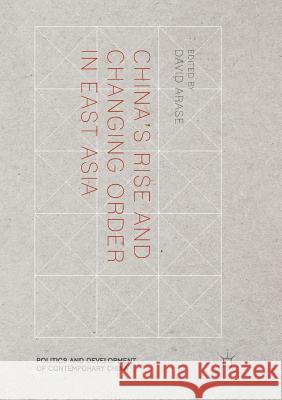China's Rise and Changing Order in East Asia » książka
topmenu
China's Rise and Changing Order in East Asia
ISBN-13: 9781349958023 / Angielski / Miękka / 2018 / 283 str.
Kategorie BISAC:
Wydawca:
Palgrave MacMillan
Seria wydawnicza:
Język:
Angielski
ISBN-13:
9781349958023
Rok wydania:
2018
Wydanie:
Softcover Repri
Ilość stron:
283
Waga:
0.36 kg
Wymiary:
21.01 x 14.81 x 1.6
Oprawa:
Miękka
Wolumenów:
01
Dodatkowe informacje:
Wydanie ilustrowane











